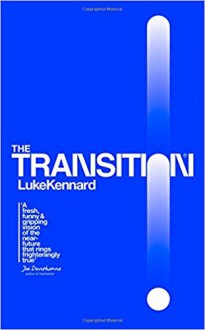
Thanks to Edelweiss and to the publishers (Vanderbilt University Press) for providing me a copy of the book that I freely chose to review.
I was drawn to this book because although I was born and grew up in Spain, I have spent the last 25 years of my life in the UK, and between the time invested in education and work, I know I have missed some of the big debates about the past that have taken place in the country. From personal experience, I know that living abroad gives you a different perspective, usually wider, on a country’s history and society, and I was interested to learn the opinions of a foreign Hispanist on the controversial topic of the book.
This book was illuminating for me. I’ve discovered that I need to catch up and read books, watch documentaries, and explore the memory movement in Spain. I know some details thanks to my mother’s family, but it is a drop in the ocean compared to the many initiatives and projects that have been implemented. I learned about laws (helpful and, mostly, unhelpful), about controversy and debates, about the origin of well-known photographs and documents (including the fact that photographers shared cameras and subjects during the Spanish Civil War, and no matter what their intent, those photographs also had, even at the time, a commercial value), about the uneasy relationship between Culture, cultural objects, and History. Is fiction less valuable when it comes to documenting the reception and the collective memory of a historical event? Or more?
Although I am not an expert in History, I have read some History books over the years and one of the things I found more refreshing about this volume, which collects a variety of essays on topics that fit in well together, is the fact that rather than offering an authoritative version of events or pontificating about the right or wrong way of looking at a particular period in history, it asks questions. On relevancy: how can an academic book written in English discussing events and recent debates about Spanish history and politics reach a wider audience? Are academics simply talking to themselves without ever reaching the general public (unless given an “official” status)? On the approach and the position historians should take when researching and writing their findings: Can historical essays and books ever be “neutral”? And should they be “neutral”? Isn’t it better to be open about one’s point of view and allegiances? (As the author observes, WWII historians are clearly positioned when writing about the war, but in Spain, this is frowned upon). On comparative studies and the risks of conflating similar events in different countries and eras, thereby missing the most interesting and fruitful aspects for analysis: Is it legitimate to apply international models (like those developed through the Holocaust studies) to the Spanish Civil War and the Francoist repression? On the position of the intellectuals and how politics and affiliations affect even those who try hardest to be rigorous. How can those intellectuals who were heavily invested in the Transition open up to other opinions and not consider them a personal criticism? On the memory movement, the hurdles faced by those trying to find out more about relatives or friends, and about the resistance of historians to see any value in memory narratives. Is forgetting the past the best option, or do the unhealed wounds and traumas that have been festering, no matter how long for, always find a way to resurface? About the boom in historical fiction novels about the Civil War and what they tell us about society and popular opinion. Although the author’s opinions are clearly stated, the questions hang there and readers can take them up and find their own answers.
As I said, I cannot claim to any expertise on the topic, and I suspect experts will have much to take issue with in this book, but for me, it helps provide the tools to answer some of the questions that inform the author’s work and that are the same that a large part of the Spanish population are asking. Quoting from the book:
How have history, fiction, and photography shaped Spanish memory? How has democratic Spain dealt with the legacy of the Civil War, the Franco dictatorship, and the Transition? And how have academics, writers, filmmakers, photographers, and journalists in Spain and elsewhere engaged with a collective process that is central to the country’s future as a unified, functioning democracy?
In view of recent events, these questions are more pressing and relevant than ever, and I hope this book reaches as wide an audience as possible. I recommend it to anybody who is open to fresh perspectives on the subject and is up for a challenging — but ultimately rewarding— read.

 Log in with Facebook
Log in with Facebook 







